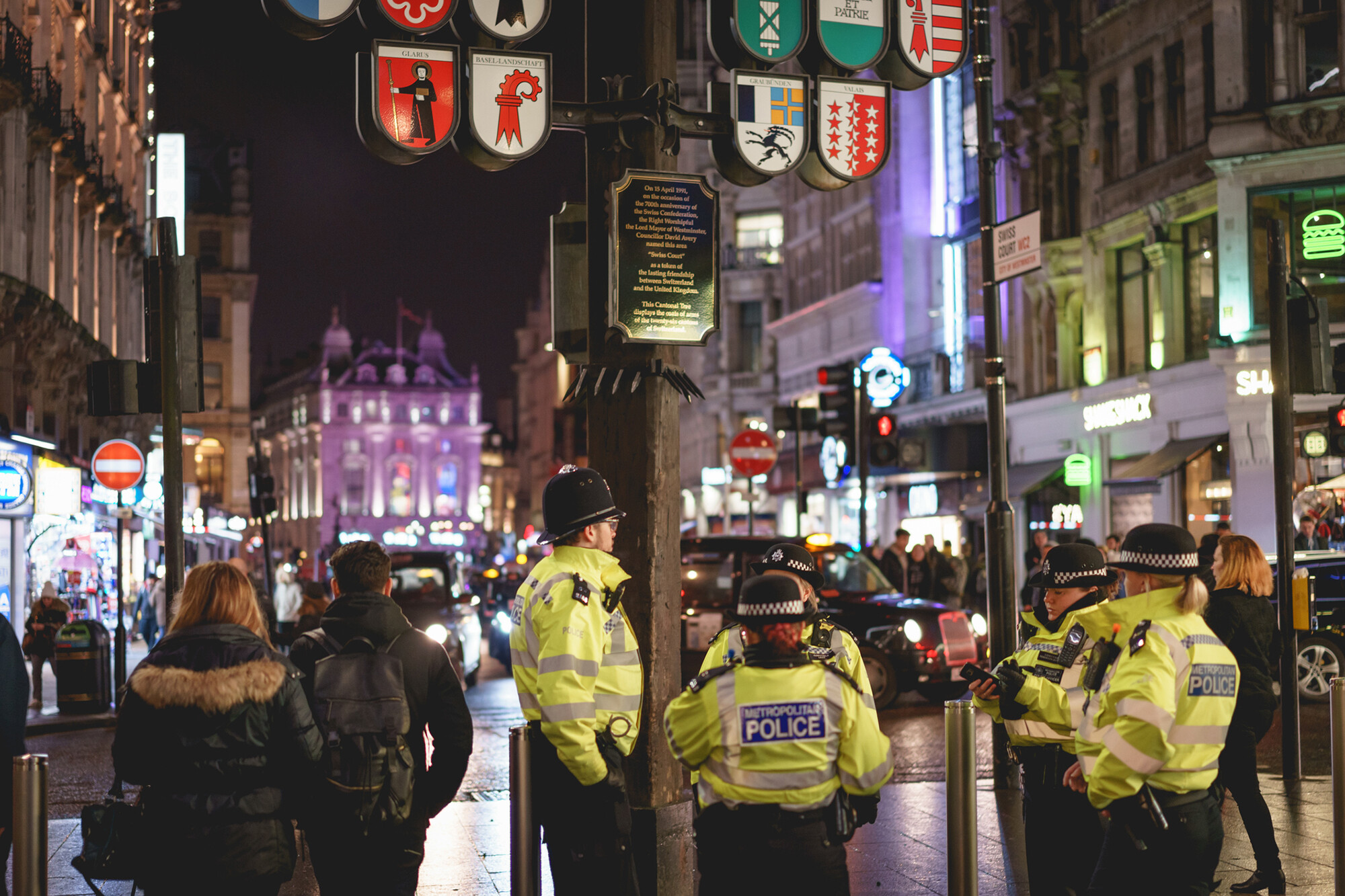
(From left) Doctoral student Hannah Yamagata, research assistant professor Kushol Gupta, and postdoctoral fellow Marshall Padilla holding 3D-printed models of nanoparticles.
(Image: Bella Ciervo)

Since its founding in 2008, the short-term homestay platform Airbnb has expanded to 100,000 cities in more than 220 countries, and, according to data from the company, 1.5 billion guests had stayed in Airbnb-listed properties through 2023.
Much of the academic research on Airbnb activity comes from economics and business literature and focuses on housing-supply impacts, says David Kirk, professor of criminology at the University of Pennsylvania. Yet research on neighborhood impacts is limited, and that research neglects the impacts of Airbnb activity on measures of community cohesion and safety.
Kirk teamed with University of Cambridge criminologist Charles C. Lanfear to study the impacts on crime of Airbnb lettings from November 2014 to May 2018 across London, one of the most popular Airbnb markets in the world. Published in the journal Criminology, their research finds that an increase in the number of Airbnbs leads to an increase in robbery, burglary, theft, and violence.
“The explanation has more to do with the altering criminal opportunities in those neighborhoods as opposed to the slow erosion of community cohesion and what criminologists call social control,” Kirk says. Lanfear explains these criminal opportunities by saying, “An Airbnb rental can provide an easy potential victim such as a tourist unfamiliar with the area, or a property that is regularly vacant and so easier to burgle. A very temporary occupant may be more likely to cause criminal damage.”
Their results indicate that each additional active Airbnb is associated with 0.16 thefts, 0.06 violent offenses, 0.04 burglaries, and 0.03 robberies per quarter. While the researchers note that the effect of a single Airbnb on crime is small compared to the effect of one additional bar or fast-food restaurant, for example, the effect is large in the aggregate when considering the tens of thousands of Airbnbs appearing in London in a short period. Kirk and Lanfear estimate that a 10% increase in the volume of London rentals over 2018 levels would yield a 3.1% increase in robberies, or about 1,000 more robberies per year.
“To be fair, Airbnb has taken concerted steps to reduce criminal activity resulting from Airbnb lettings, including background checks on guests and requiring minimum nights of rental on occasions when one-night parties may be tempting to hold,” the researchers say. “The fact that we still find an increase in crime despite Airbnb’s efforts reveals the severity of the predicament induced by the rise of home sharing.”
The study found that the increased crime is consistent with predictions from routine activity theory, meaning that predatory crime rates are driven by the convergence of suitable targets, likely offenders, and the absence of capable guardians rather than social disorganization, meaning a loss of social control resulting from the destabilization of the neighborhood. Thus, their findings provide evidence that crime increases soon after rentals rather than slowly over time.
The authors found their hypotheses that Airbnb activity would be positively associated with different crimes and that the effect on crime would be greater for rentals of entire homes than rentals of rooms to be correct.
They did not, however, find support for their other two hypotheses: that Airbnb activity would decrease neighbors’ ability to control the social behavior of others in the community, and that increased crime would be partly attributable to a decrease in this capacity for social control, known as collective efficacy. Kirk and Lanfear estimated collective efficacy using responses to a public attitudes survey put out by the Mayor of London’s Office for Policing and Crime and the London Metropolitan Police Service.
Their data on Airbnb lettings came from AirDNA, a data analytics company that collects information on the availability and usage of Airbnb properties and distributes it for commercial purposes. Crime data came from the London Datastore and the Home Office’s data portal.
To see if their findings could be due to changes in London neighborhoods other than Airbnbs, the research looked at activity around Premier League stadiums on the days of soccer matches, police stops, and socioeconomic characteristics. But “nothing changed the core finding that Airbnb rentals are related to higher crime rates in London neighborhoods,” Lanfear says.
Kirk says he would expect the same effects on crime from similar platforms like Vrbo. When it comes to different locations, “Replication of our analysis in other contexts, particularly in the United States, would be fruitful to advance work on the mechanisms by which Airbnb facilitates crime.”
Kirk notes that a 2021 study found evidence that increases in Airbnb listings led to more violence in Boston neighborhoods. Commenting that Boston is a mid-sized city and that London may be exceptional due to its large volume of Airbnb lettings, Kirk says he thinks it would be useful to replicate their London study in an average large city in the U.S. or elsewhere.
This study builds on Kirk’s research agenda looking at implications of the sharing economy on criminal activity. Kirk says after looking at the impact of Uber on traffic fatalities and drunk driving, he started wondering whether criminological theories could explain other facets of the modern sharing economy and landed on Airbnb. “I really wanted to test 20th century theories to see if they could do a good job of explaining a 21st century phenomenon,” he says.
David S. Kirk is a professor in the Department of Criminology in the School of Arts & Sciences at the University of Pennsylvania.
Charles C. Lanfear is an assistant professor at the Institute of Criminology at the University of Cambridge.
This research is supported by the Leverhulme Trust.

(From left) Doctoral student Hannah Yamagata, research assistant professor Kushol Gupta, and postdoctoral fellow Marshall Padilla holding 3D-printed models of nanoparticles.
(Image: Bella Ciervo)

Jin Liu, Penn’s newest economics faculty member, specializes in international trade.
nocred

nocred

nocred